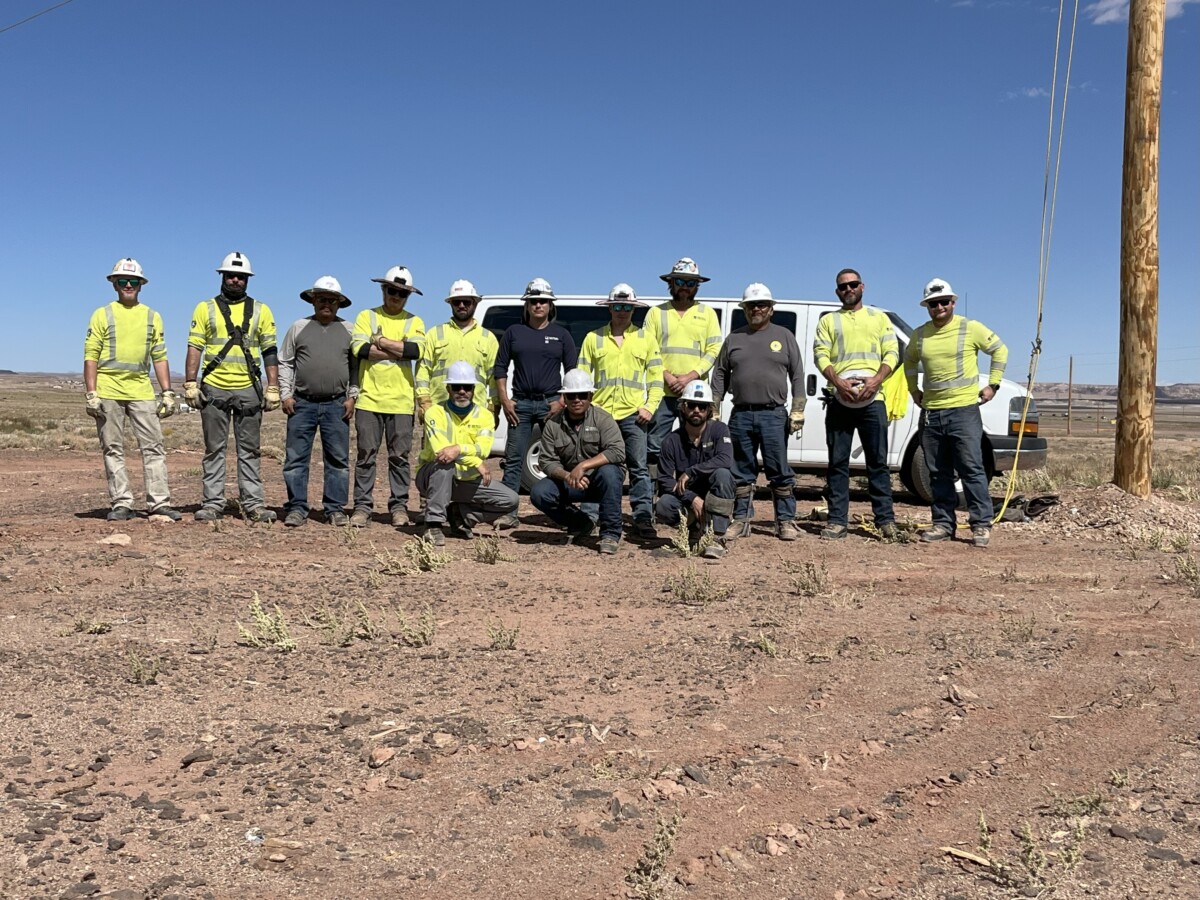
The first wave of PG&E linemen from IBEW 1245 gather on the Navajo Nation, where they’re working to connect homes to electricity for the very first time.
Sixteen IBEW 1245 members are deploying to the Navajo Nation as part of Light Up Navajo (LUN), a mutual aid initiative between the Navajo Tribal Utility Authority (NTUA) and utilities across the country. Together, they will bring first-time electric service to families who have waited years — and in many cases, generations — to have power in their homes.
The Navajo Nation spans 27,000 square miles across Arizona, New Mexico, and Utah – larger than the state of West Virginia. Yet nearly one-third of homes still lack electricity. That means more than 10,000 Navajo families live without the basic services that most Americans take for granted, from refrigerators and lights to medical devices and internet connections.
“For most Americans, not having electricity at home is unthinkable, but thousands of families on the Navajo Nation have never had it,” said IBEW 1245 Business Manager Bob Dean. “Because of the work IBEW 1245 members are doing, these families will finally experience the simple but profound moment of flipping on a light switch for the first time. That’s the difference our members are making, and it will stay with them always.”
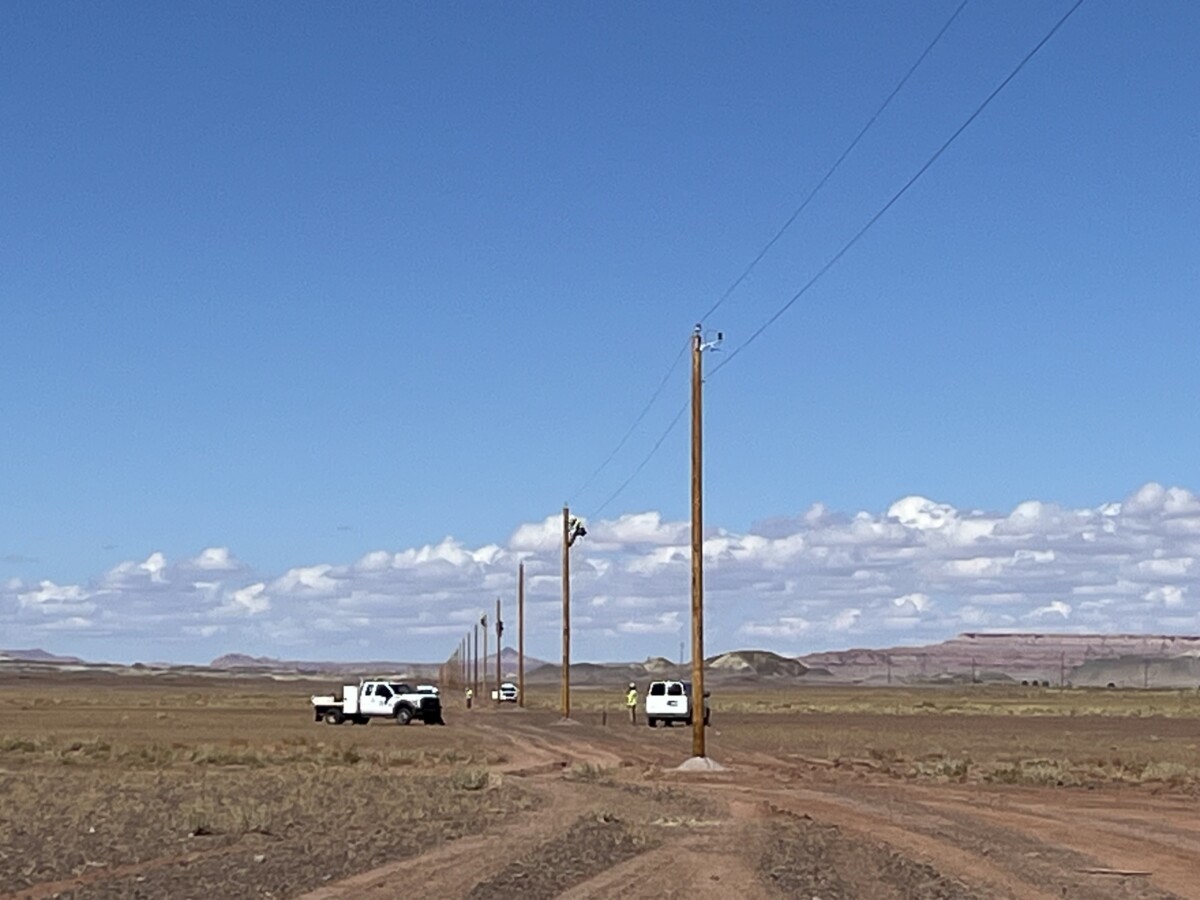
IBEW 1245 members from PG&E spread out across the Navajo Nation, working pole by pole to extend power to families for the first time.
“As an IBEW electric construction contractor business owner and a fellow Native American, I am grateful for the opportunity to partner with the Navajo Nation through Light Up Navajo,” said Cameron Hale Statement, Owner/President/Founder of Alvah Construction. “The chance to contribute our electrical contracting skills and resources to the Navajo Nation is an honor, and we are excited to see the positive impact of our collective efforts.”
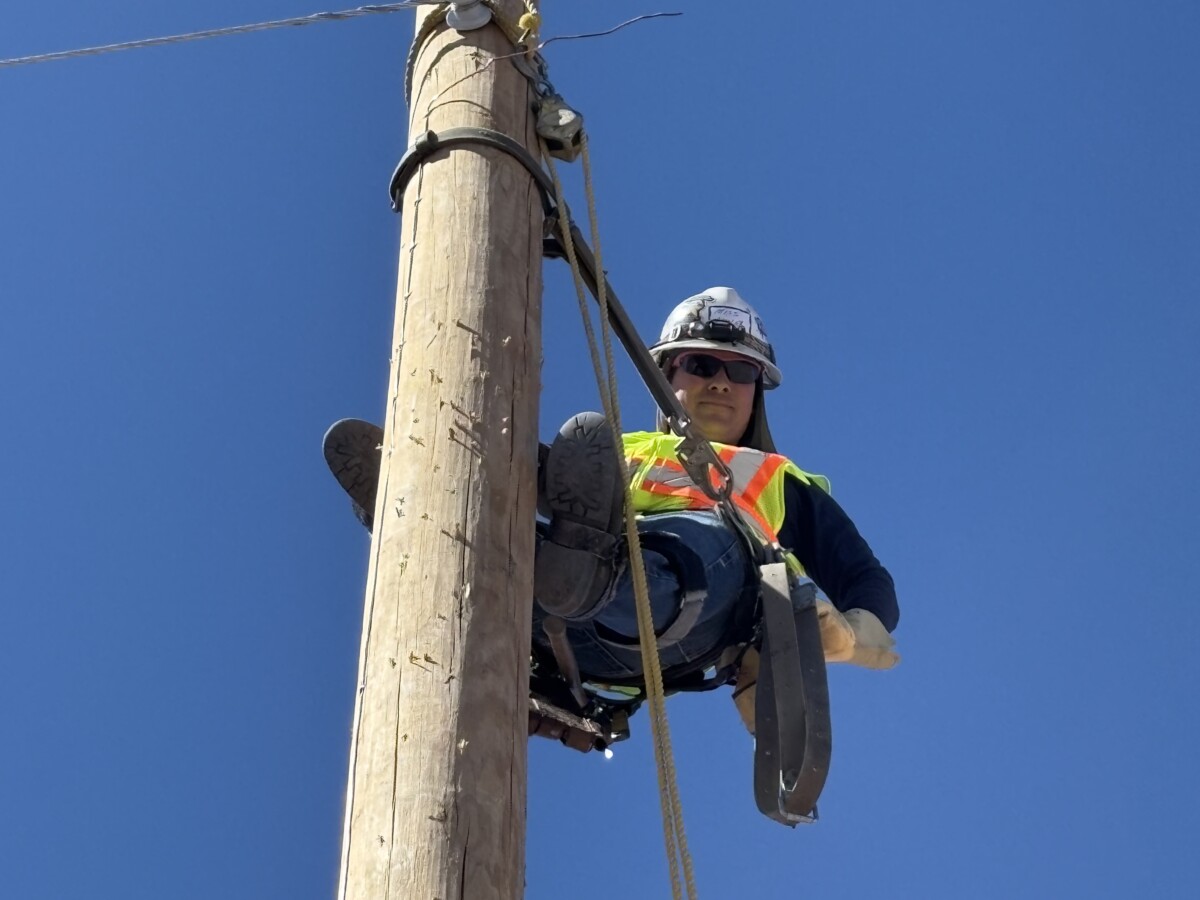
An IBEW 1245 lineman takes a breather mid-climb while volunteering with Light Up Navajo — helping bring electricity to families who’ve never had it before.
IBEW 1245 members will rotate in two cohorts over a month-long deployment to the Navajo Nation. The first wave, made up of PG&E crews, includes both General Construction linemen, who focus on large-scale projects, and Division linemen, who maintain the day-to-day system in local communities. They started work on September 29 and will go until October 10.
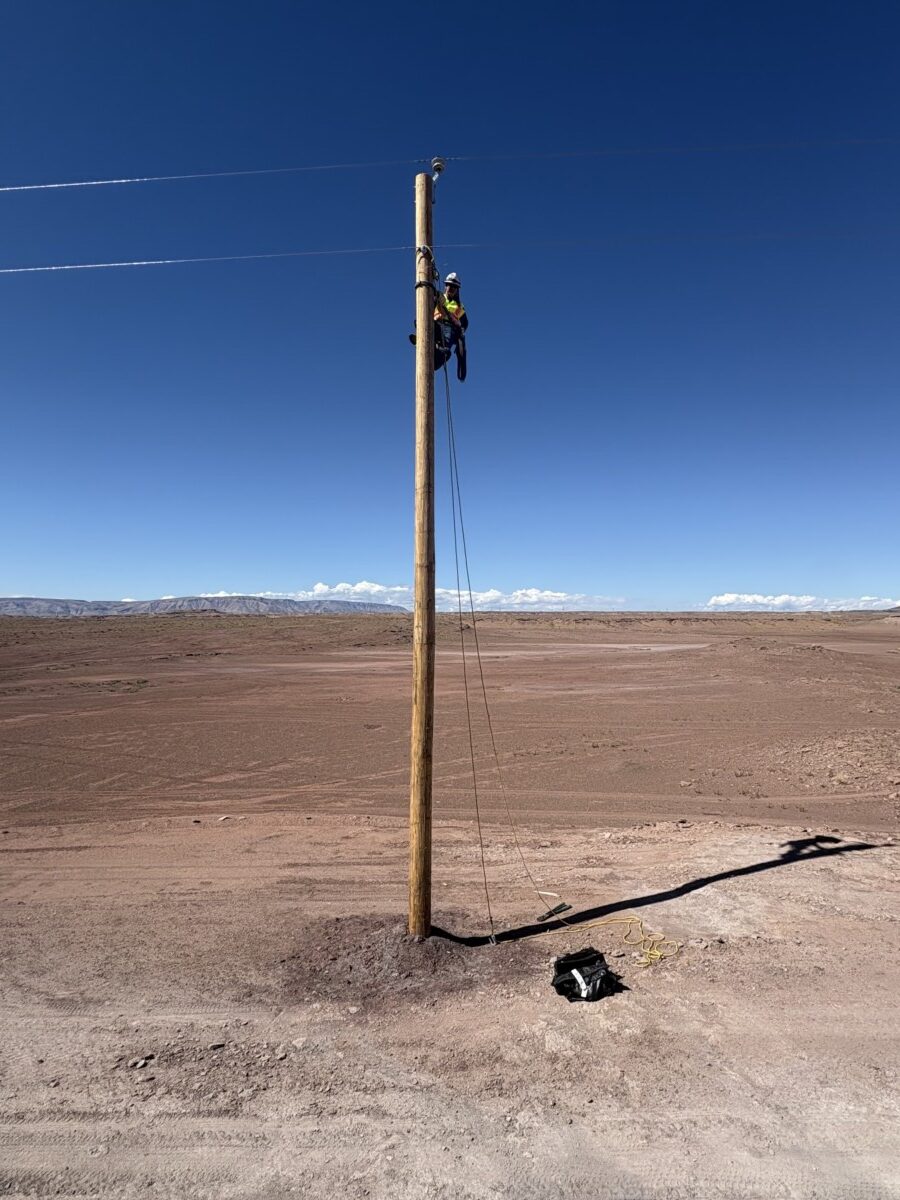
IBEW 1245 crews put their skill and training to work on the Navajo Nation, climbing poles across the desert to deliver electricity to families experiencing it for the very first time.
The second wave — Outside Construction linemen from Alvah Contracting, experienced crews who build and maintain power lines across the West — will arrive on October 11 and continue the mission through October 24. Their participation marks a milestone, as it is the first time IBEW 1245’s outside construction crews have joined this historic effort.
On the ground, IBEW 1245 Business Representative Todd Kadota is providing on-site leadership—coordinating with NTUA, supporting daily safety briefings and logistics, and ensuring continuity between the first and second waves of crews.
For the linemen participating in this effort, the mission is deeply personal.
“It’s humbling to think that in 2025, there are families in America who can’t turn on a light switch at home. I’m proud to stand with my union brothers and sisters to help close that gap. This is the kind of work that reminds you why you got into the trade,” said Sal Ramos, PG&E Line Foreman from Santa Rosa.
“When I was offered the opportunity to be part of Light Up Navajo, I said yes without hesitation. In our daily work, electricity is something that’s expected and often taken for granted. Knowing that our skills and craftsmanship can be used to dramatically change lives is something I don’t take lightly, and I am truly grateful to contribute to such a meaningful effort,” said Sebastian Blancato, Alvah Construction Line Foreman from Placerville.
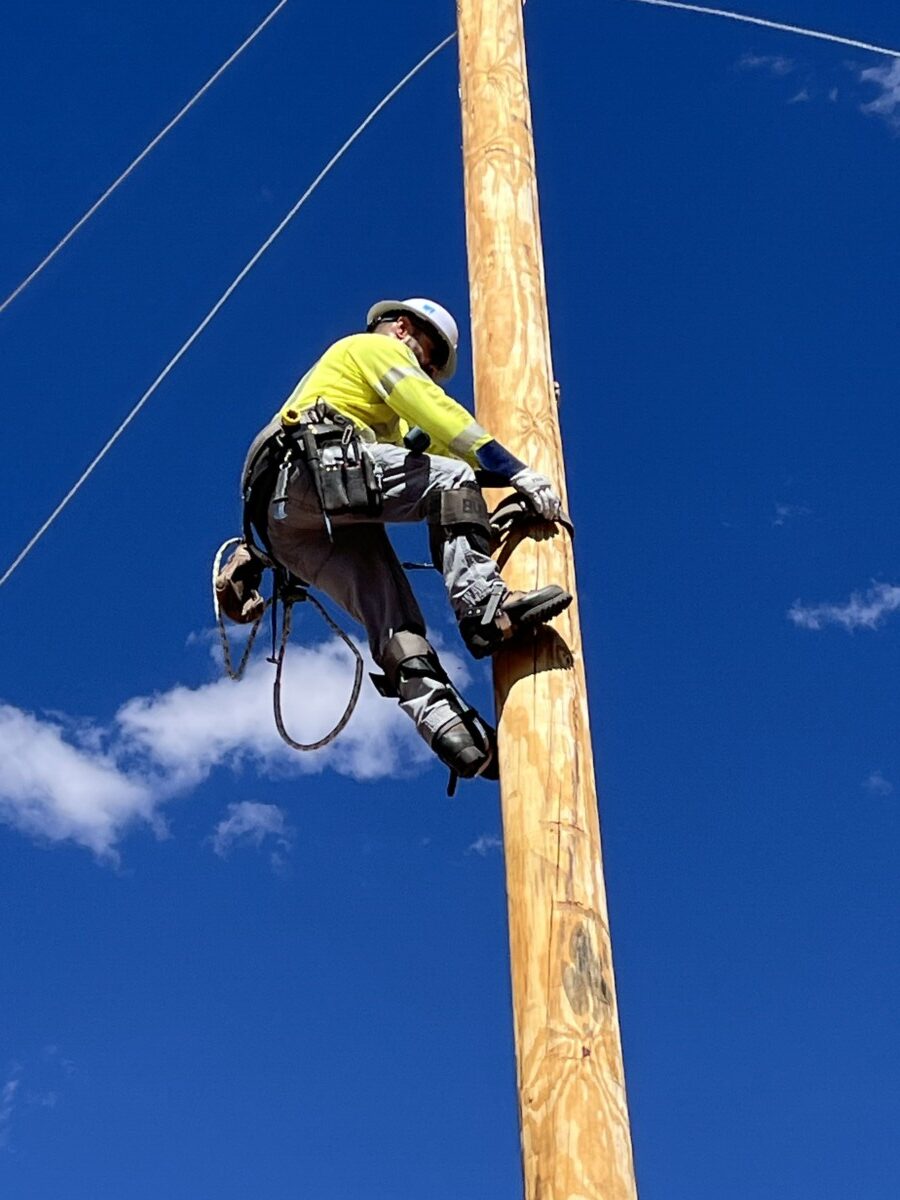
One of our IBEW 1245 linemen works his way up the pole on the Navajo Nation. Each step brings us closer to connecting families to electricity for the very first time.
“It’s an honor to be part of this effort. Helping connect families to power is the kind of work that reminds me why I became a journeyman lineman—to give back to those less fortunate and take ownership in my trade,” said Danny Mendoza, PG&E Journeyman Lineman from San Carlos.
“With 32 years of experience in the industry, nothing brings me greater satisfaction than restoring power and seeing the positive impact on our customers. I find it difficult to imagine that, in 2025, there are communities still without access to reliable electricity. I am sincerely grateful and humbled to have the opportunity to work alongside Alvah and my union colleagues on this project,” said Shad Bales, Alvah Construction Line Foreman from Benicia.
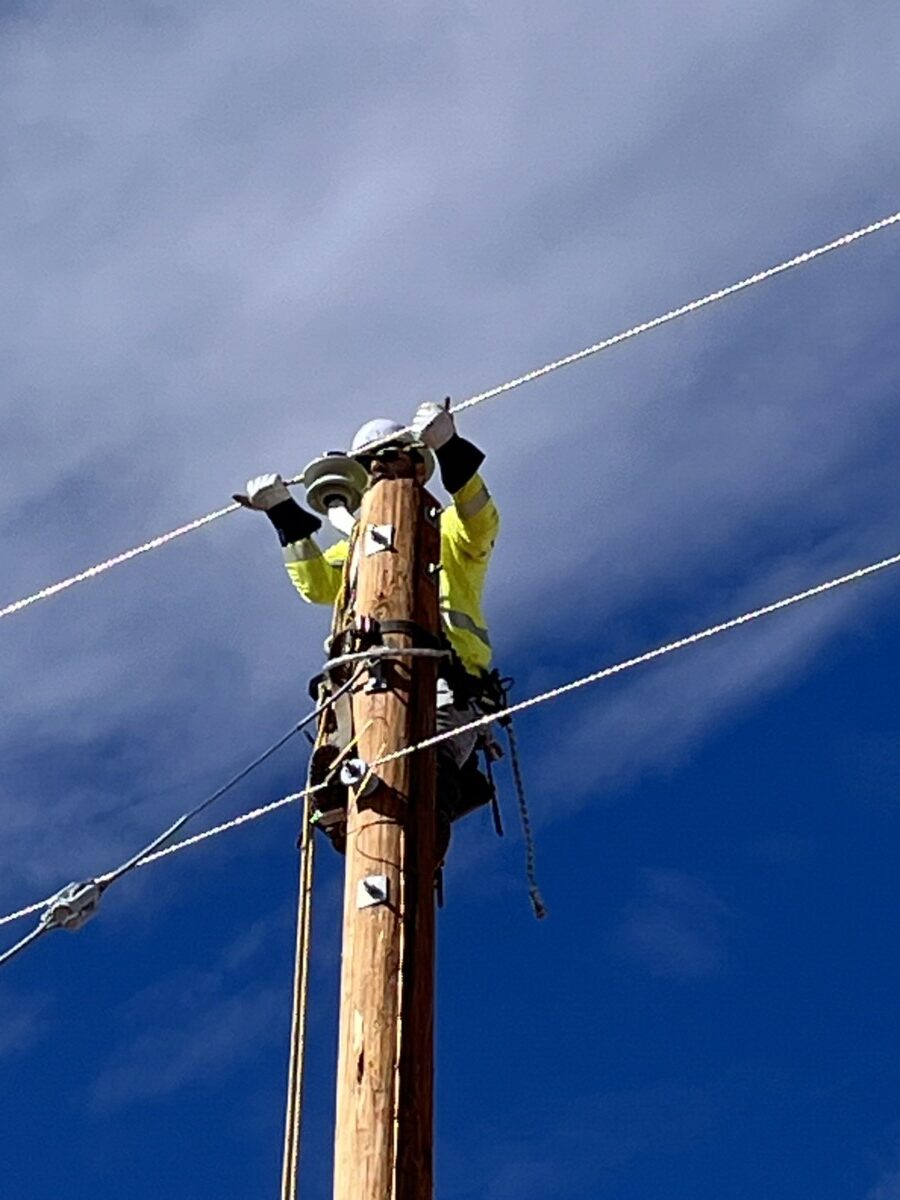
Careful hands at the top of the pole — PG&E linemen from IBEW 1245’s first deployment make the final connections to bring power to Navajo homes.
“I’m truly honored to be part of such an important project. It’s humbling to know that our work is making a lasting impact for families who have gone their entire lives without power. Something as simple as turning on a light, keeping food cold, or charging a phone will completely change daily life for them, and being able to help make that possible is an experience like no other,” said Nick Pion, Alvah Construction General Foreman from Placerville.
The work is not easy. Crews must set poles through rocky ground, string wire across vast desert landscapes, and travel long distances between homes. But for the families who wait years for service, the payoff is immediate and profound.
Launched in 2019, LUN has already connected nearly 900 families to the grid with the help of more than 850 volunteers, building hundreds of miles of new line. The effort is also supported by Electrical Workers Without Borders North America (EWWB-NA).
IBEW 1245’s participation in LUN underscores IBEW 1245’s commitment to using skill, solidarity, and service to improve lives and bring lasting change to communities.